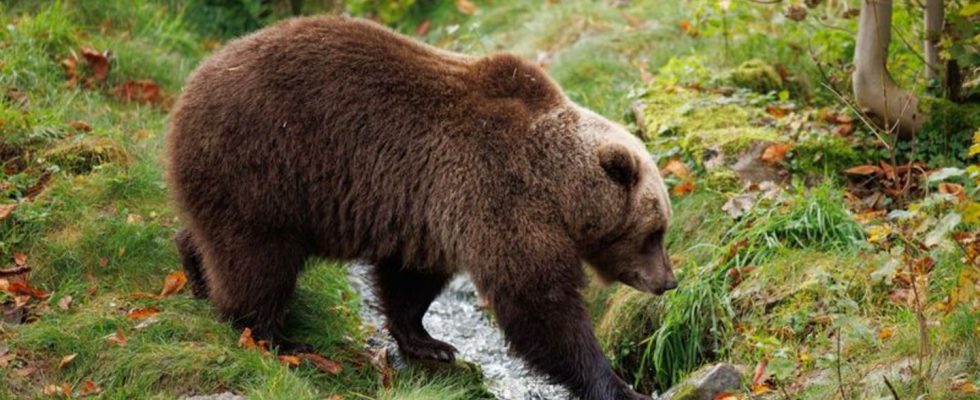Animals
Mild weather: Bears in the Pyrenees forego hibernation
“Since the weather was particularly mild and the autumn was rich in fruit, it was easier for them to find something to eat, which is why some of them have not yet begun to hibernate,” reports the “Land of the Bears” association (symbolic image). photo
© Friso Gentsch/dpa
The weather was mild and there was enough to eat: That’s why brown bears in the Pyrenees forgo their hibernation. With climate change, this could become the rule, says an expert.
Because of the mild winter, a number of brown bears in the Pyrenees have apparently resorted to their usual habits Foregoing hibernation and instead exploring their surroundings or looking for females.
“For this animal, hibernation depends on two factors: weather and food,” said the head of the brown bear network of the French Biodiversity Agency (OFB), Julien Steinmetz, to the newspaper Le Monde. “With the mild and friendly weather, they were able to find dried fruits, plants or acorns very late, hence the activity observed.”
“Winter rest hasn’t started yet”
Bears are also active there in winter, but this time they are more frequent than usual. Bears normally gorge themselves in the fall to accumulate fat. If they can no longer find food, they go into hibernation and retreat into caves, said Steinmetz. The “Land of the Bears” association recently published recordings from observation cameras that showed a mother bear with her offspring and another bear in nature between November and February.
The bears go into hibernation when searching for food costs them more energy than it brings in, explained the association’s director, Alain Reynes. “As the weather was particularly mild this year and the autumn was rich in fruit, it is easier for them to find something to eat, which is why some have still not started hibernation.”
“I note above all that the large males in search of females or the young adults discovering their mountain have been active,” the founder of the brown bear network, Jean-Jacques Camarra, told the newspaper ” “Moons”. “It is conceivable that one day the animals will no longer hibernate at all, which of course depends on the climate.”
Bears almost disappeared almost 30 years ago
The number of brown bears found in the Pyrenees in France has recently increased again to around 80, after the bears in the mountains on the border with Spain had almost disappeared in 1995. Around 400 brown bears were counted on the Spanish side of the mountains last year.
In contrast to many smaller mammals such as bats and hamsters, which truly hibernate, brown bears usually only hibernate, interrupted by periods of activity during which their body functions are not so severely reduced. Hibernation and hibernation are a strategy to avoid harsh weather and food shortages. Many life functions are put on the back burner.

